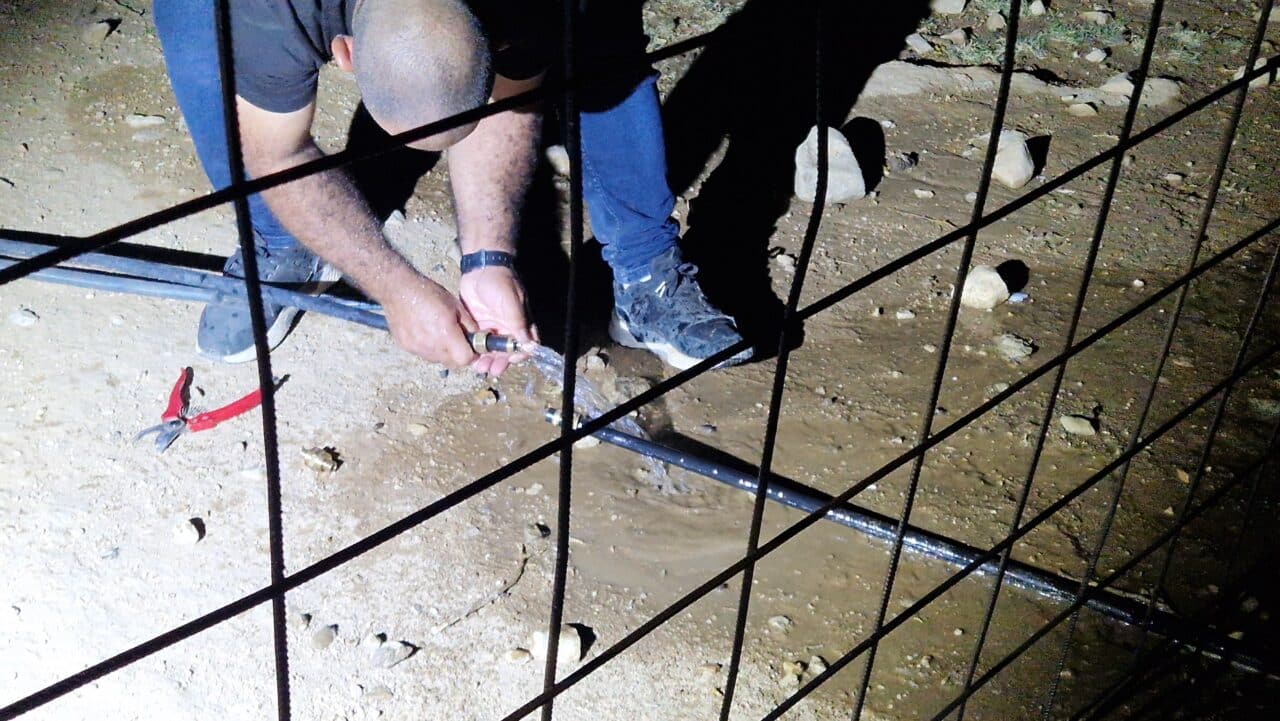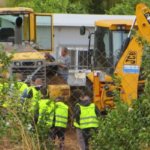The Economist: The Jordan valley – A dry bone of contention
Israel refuses to leave the valley. But is it still a strategic asset?
Nov 25th 2010 | hadidiya, jordan valley | from the print edition

You might have thought the Jordan Valley was already empty enough. After almost half a century of Israeli occupation its Palestinian population has shrunk from over 200,000 to fewer than 60,000. But UN monitors say that Israel is intensifying its efforts to curb residency for Palestinians. The space for them to roam has been squeezed by closed military zones, conservation areas, Jewish settlements and the building of grand-scale roads, mostly for the use of Israelis, that slice through the territory. Last year, the Israeli army posted “danger” signs in front of dozens of Bedouin camps, declaring them firing zones. Israeli soldiers guard the junctions heading from West Bank cities into the valley below, to keep out Palestinian drivers, including Bedouin, who lack Jordan Valley residency permits. Being nomads, the Bedouin struggle to provide proof of abode.
At Hadidiya, a Bedouin camp in arid wasteland next to a Jewish settlement replete with swimming pools, the remains of tents flattened by Israeli troops litter the scrub. To escape, claims its headman, Abu Sakr, all but 14 of the camp’s 160 families have fled deeper into the hills. “Why do they put Arabs in military zones and not Jews?” he asks against a backdrop of ripped canvas. “Why do they let soldiers shoot in conservation zones but stop me grazing my goats?”
Under previous Israeli governments, enthusiasm for the Jordan valley had waned. The proliferation of missiles able to vault the valley had punctured the security arguments—deployed by old-school Israeli strategists—that the valley’s rocky slopes formed the best barrier against an Arab invasion or guerrilla infiltration from the east. Dov Weisglass says that Ariel Sharon, one of Israel’s most hawkish former prime ministers, whom he closely advised, always intended that Israel would sooner or later withdraw from the valley.
But under Binyamin Netanyahu, Israel’s current prime minister, the old logic is enjoying a comeback. “Israel will never cede the Jordan valley,” he said in March. Only last year did he accept the notion of two states, an Israeli one and a Palestinians one, existing side by side; his party has formally yet to do so. His vision of a Palestinian state is one surrounded by Israeli territory along the Jordan valley. He has the backing of most Israeli members of parliament, who this week voted by two to one that any decision to withdraw from East Jerusalem or the Golan Heights be put to a referendum.
After a period of decline, Israeli outposts in the valley are again increasing, bolstered by religious settlers filling the shoes of the tired secular founders. Some 35 now dot the valley, claiming jurisdiction over 90% of it. The fertility of the farmland and the abundance of raw materials increase its attraction.
A fortnight ago 15 young Israelis in T-shirts came down from Maskiyot, a hilltop settlement, took possession of a Bedouin tent, put up a fence to keep out the family and its goats, and sang Hebrew chants. An Israeli army jeep idled by, briefly surveyed the rumpus, and drove on. The local Palestinian governor, whose headquarters is in the Arab town of Tubas, paid a call, before also hurrying away. “From experience, we’ve learnt that, if we protest, the settlers will resort to violence and demand that the state confiscate the land to protect them,” explains a Palestinian activist who advises the Bedouin. On a nearby wall, someone had daubed in Hebrew: “Bless God for not making me a gentile.”
While settlers bring mobile homes by the hundred to bolster their expansion, the Bedouin are increasingly boxed in. At Muarrajat, a Bedouin camp, children sit on stones in the baking midday sun as they study their books. The Israeli army, say the Bedouin, has prevented delivery of containers that a Belgium benefactor has donated for new classrooms. The army has assigned all but one of the existing ones for demolition. “We are the law here,” explains a military spokesman. “If a structure is built illegally, we must destroy it.”
A number of mediators have sought to change Mr Netanyahu’s mind. Some suggest that, while Israel’s peace treaty with Jordan is reasserted, a buffer zone could be drawn up on the eastern side of the Jordan river, perhaps monitored by peacekeepers from NATO or the UN, to protect Israel against an invasion from the east and to enable it to withdraw from the West Bank. American negotiators have also proposed land-leasing schemes to let Israel remain in the Jordan valley for a decade or so, to build confidence—they hope—between Arab and Jew.
The Palestinians generally dislike such ideas, saying it is not for the Americans to jettison territory on their behalf. Yet many of them may still be prepared to make such concessions if a viable, sovereign and contiguous state, free from settler encroachment and from military rule, were eventually to ensue.
http://www.economist.com/node/17581571


